Apex Legends is the latest victim of the Nintendo Switch's multiplayer FPS problem
The Apex Legends Nintendo Switch port reveals a console that continues to struggle with one particular genre
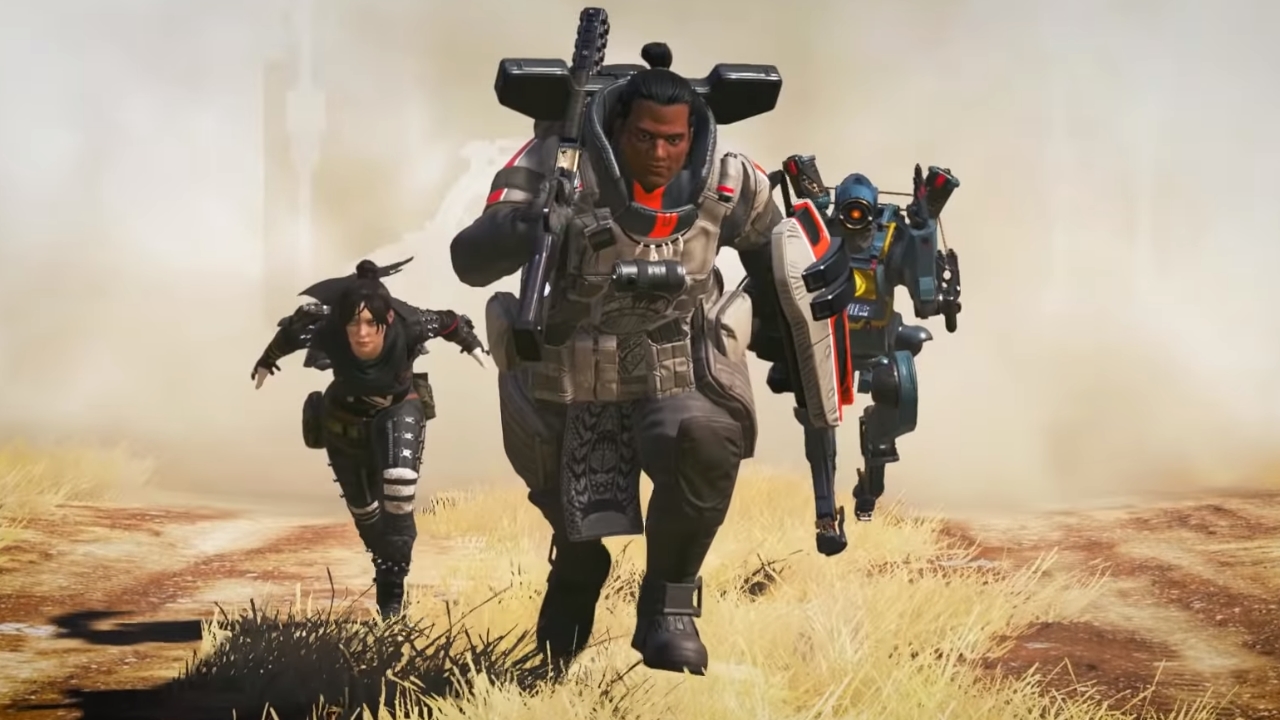
Let me start off by clarifying the obvious: I love my Nintendo Switch. Certainly, anyone who owns the console doesn't need me to shower more praises on its intuitive form function, impressive portable power, and unique Joy-Con design.
Nintendo's scrappy little gaming machine is brilliant, there's no question about that, but precisely that which makes the Switch so brilliant is inversely causing problems for one particular and ever popular genre: the competitive first-person shooter.
Yes, it's true that the venn diagram of Nintendo's targeted audience and the hardcore FPS crowd has a slim centre. But, for the Switch owners who do want to scratch that online shooter itch from the comfort of their favourite handheld, the console's limitations come into painfully clear focus when looking down the sights of a digital gun.
Port paralysis
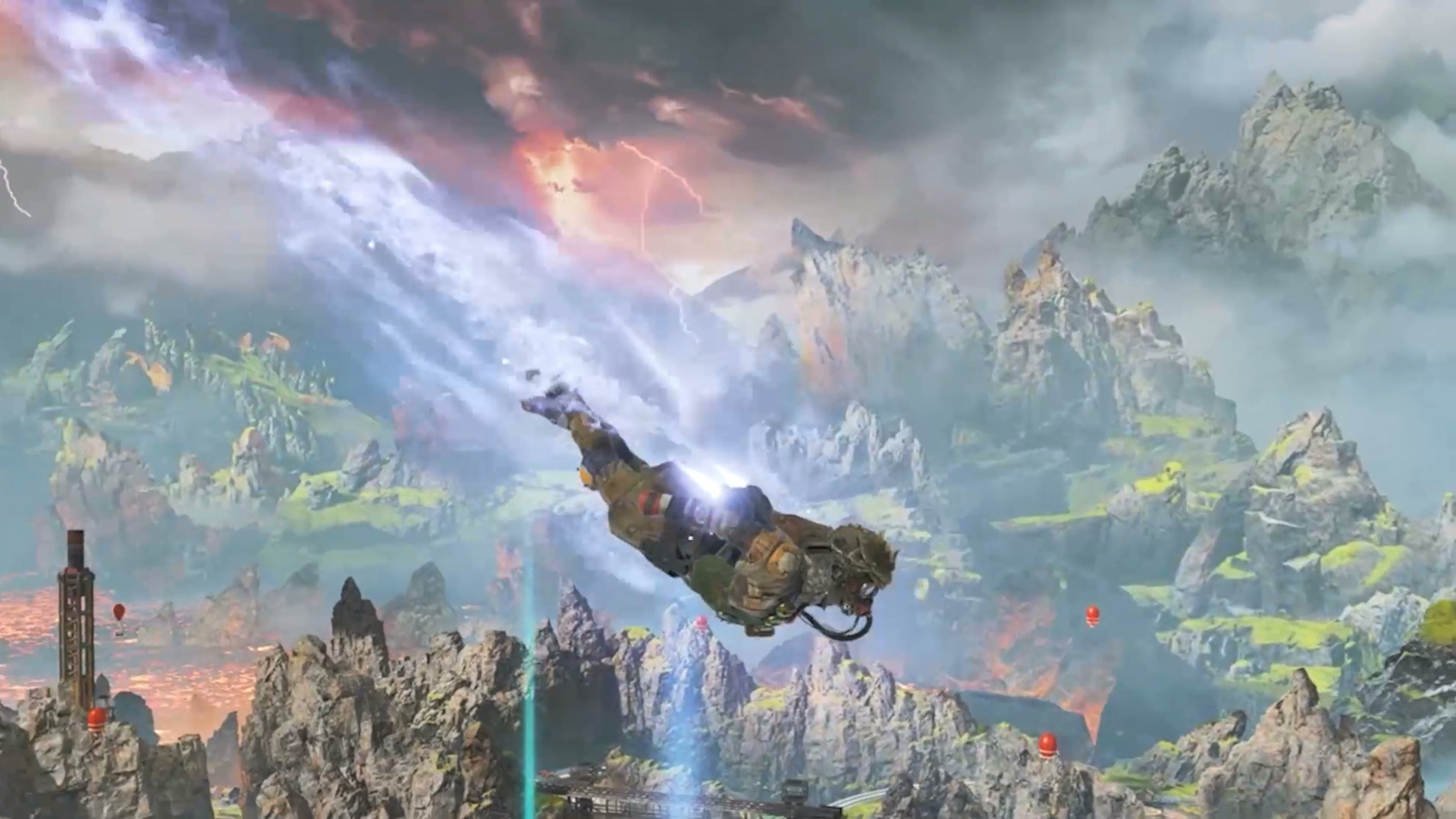
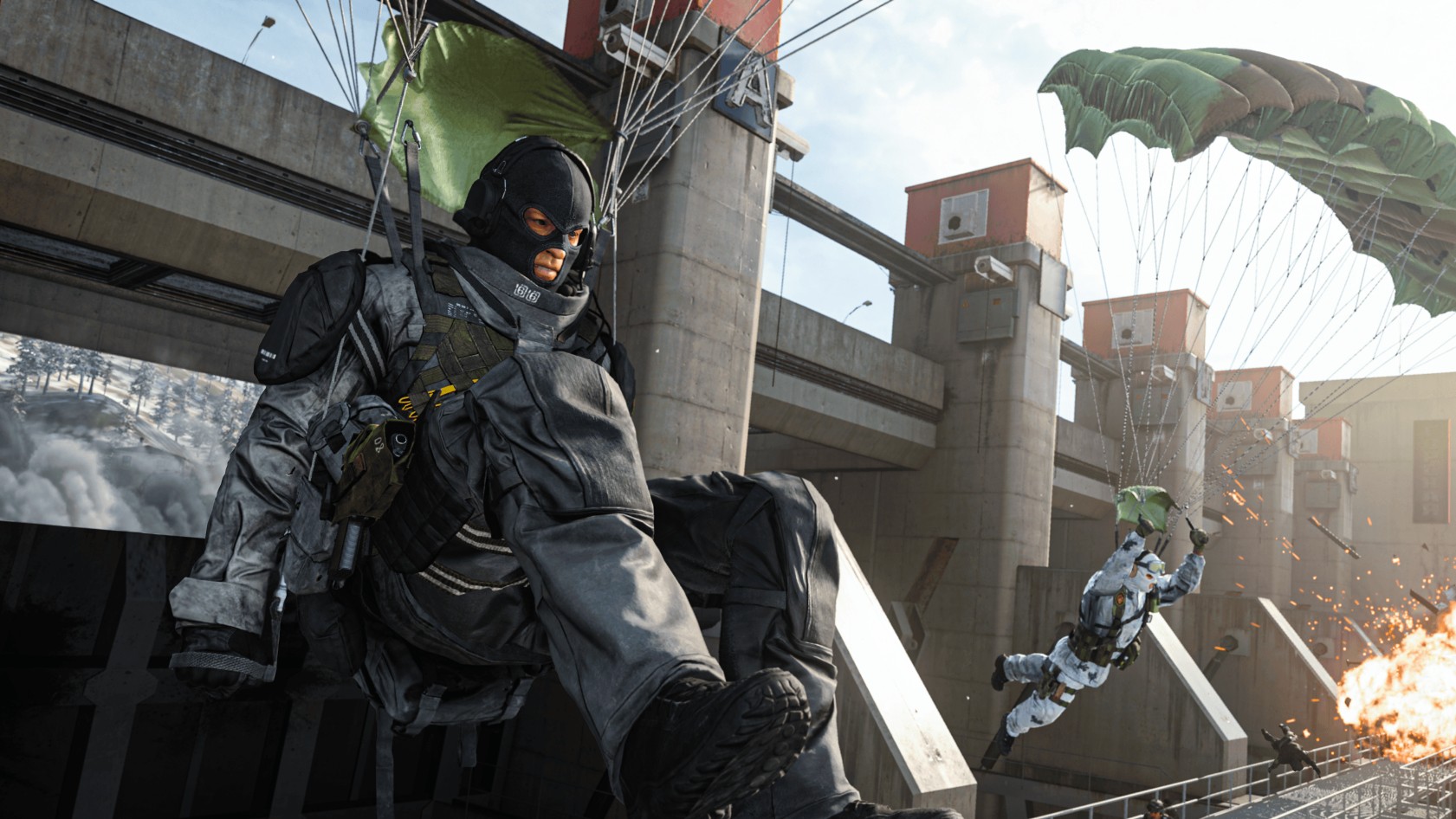
One year of Warzone: How battle royale changed Call of Duty for good
Apex Legends launched on the Nintendo Switch on March 9, with Respawn's free-to-play battle royale ported to the console by developer Panic Button. The shooter runs at a locked 30 frames-per-second in 720p when docked to your TV, with that resolution reduced to 576p in handheld mode (which, it's worth adding, is the only mode available on Nintendo Switch Lite). The game also includes support for the Joy-Con's gyro controls and HD rumble, while full cross-play and cross-progression is featured for those who want to connect their EA account between different platforms.
I would strongly recommend, however, that you turn cross-play off the moment you boot up Apex Legends on Switch, as those competing from other platforms will have a clear advantage. The game's lowered resolution makes it much harder to detect enemies located any further than a few yards away, while that capped framerate also hampers your ability to keep up with Apex's fast-paced, push-and-pull firefights.
Meanwhile the Joy-Con's analogue sticks possess limited ergonomic range that often hinders your precision, especially with longer ranged weaponry, while the Switch's gyro controls only contribute to that sense of inaccuracy with awkward, wild swings of the gun at the worst possible moments; thankfully, those motion controls can be turned off. While the use of a Pro Controller does somewhat alleviate the issues associated with the Joy-Cons, but even with all of the Switch's bells and whistles attached, it's an Apex Legends experience that falls far short of the performance found on other systems.
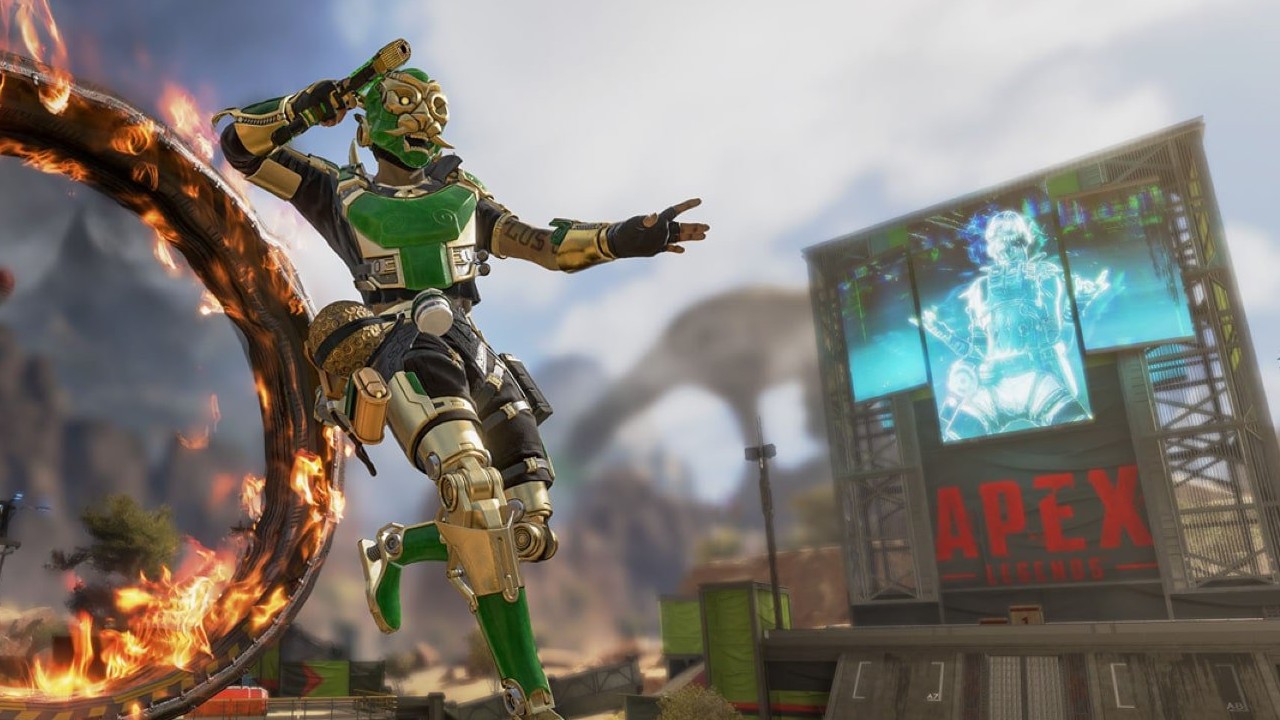
That's to be expected, of course, as the Switch's technical threshold has always been the trade-off for its portability, and that's an exchange many of us are happy to make. Indeed, those limitations aren't a problem for the majority of the games in the Switch's library, which are either optimised specifically for the hardware, aren't a particularly demanding resource-drain in the first place, or can simply afford to lower their specs without sacrificing their entertainment value.
Sign up to the GamesRadar+ Newsletter
Weekly digests, tales from the communities you love, and more
But when it comes to online, tightly competitive first-person shooters, those specs matter more than most. If you're losing a match because of poor picture quality or awkward controls, rather than any skill deficiencies on your part, then the chances are you're not going to be enjoying yourself for long.
Apex Legends isn't the first multiplayer FPS to suffer from these problems on Switch, either. When Overwatch was ported to the platform in 2019, it was plagued by similar issues as a result of the sacrifices Blizzard had to make to get the game running on the console. Other online third-person shooters, such as Fortnite and Splatoon 2, have managed to hit a better balance between performance and gameplay, but we've yet to see a first-person equivalent that finds a comparably satisfying equilibrium.
Switch it up
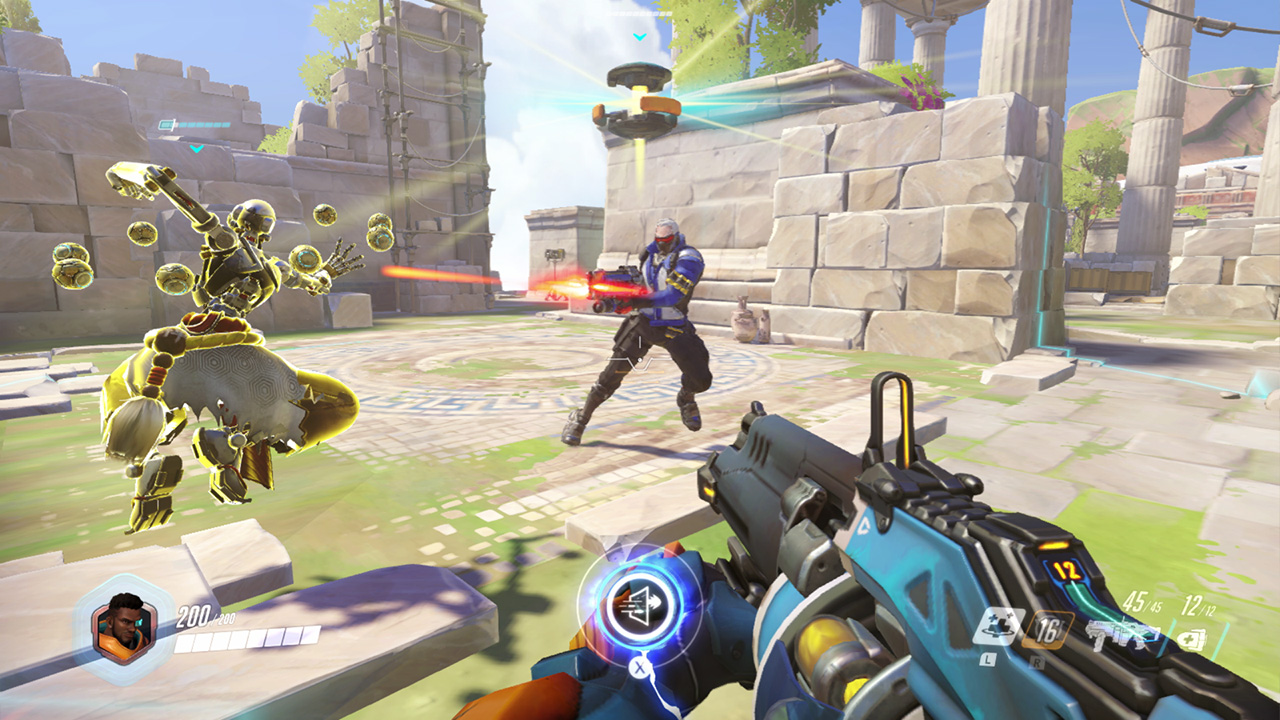
"If you're losing a match because of poor picture quality or awkward controls, chances are you're not going to be enjoying yourself for long."
With rumours swirling of a Nintendo Switch Pro releasing later this year, there's hope for the platform's first-person shooter woes yet. Early reports have suggested the model will boast an OLED screen and 4K support for docked mode, which would offer a drastic improvement for the genre's ability to present clearer, richer environments from the first-person perspective. An upgraded internal processor, meanwhile, would also be welcome, allowing developers to maintain higher frame rates without lowering those resolutions, either.
The more Nintendo can do to facilitate the demands of the competitive FPS through the Switch's architecture, the more developers can port these games over with a greater chance of finding a long-term audience, which in turn will help change perceptions about the kind of gaming ecosystem that the console houses. Nintendo's systems have always been fertile ground for sprouting a diverse portfolio of titles big and small, but the Switch's inability to offer a viable home for the competitive FPS remains a glaring blind spot in this regard.
Given everything else the Switch is capable of, that blind spot resembles a missed opportunity at worst, but if we want a future where AAA multiplayer shooters aren't excluded from the one portable platform where they could feasibly exist, then Nintendo would be wise to address that opportunity with its next iteration of Switch hardware. For now, however, Apex Legends players would be wise to leave the battle royale's latest port well alone.
For more, check out all the biggest new games of 2021 to keep an eye on, or watch our preview of the Outriders demo in the video below.
I'm GamesRadar's Features Writer, which makes me responsible for gracing the internet with as many of my words as possible, including reviews, previews, interviews, and more. Lucky internet!



